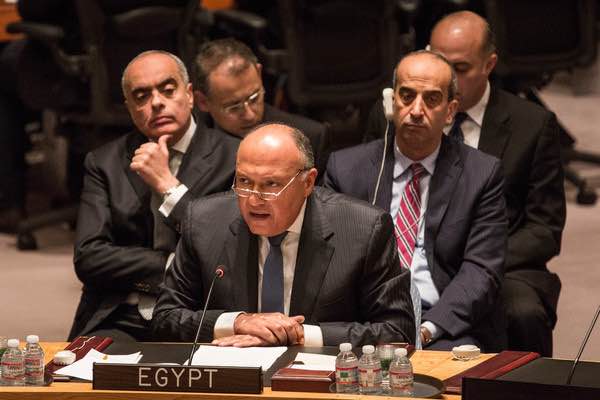The distinct layers of Middle East conflict – Israel-Arab, the future of the Lebanese state, the disintegration of Iraq, the Iranian nuclear program as well as the burden of socio-economic and political transformation for Arab countries (rich in oil, but lacking natural resources) – are not only interlinked, but also have a regional and even international impact. Three examples suffice. First, Iran strives for recognition as regional power in the Middle East and is using its nuclear program to state its claim. Subsequent regional and international protests have induced the Iranian leadership to demonstrate its power in the entire Middle Eastern region. With its close relations to Syria, Hezbollah, Hamas and Islamic Jihad it can weigh into the Arab-Israeli conflict. Iran is able to direct relationships among Arab states, for example in Syria, Lebanon and Iraq, and holds sway over the future and stability of Iraq via Shia groups. Similarly, the re-emerging Shia groups in other Arab countries are here and there influenced by Tehran. Second, the ceasefire between Israelis and Palestinians has not only raised expectations of an improvement of the situation, but has also contributed to constructive discussions at the recent Euro-Med foreign ministers’ meeting in Tampere. The ministers even agreed on further milestones (for example on education) for the implementation of their five-year program. Third, Lebanon’s statehood is at risk. The struggle for power and influence among the various religious groups has been reopened with the pullout of the Syrian troops and the warfare between Israel and Hezbollah, and has heightened tension due to the interests and polarization of external actors. Syria, Iran, Saudi Arabia, Israel, France and the United States all play their part. The tension between Sunnis and Shia further complicates the situation, as does the Israel-Arab conflict. Most of all, however, according to United Nations Security Council Resolution 1701, the mandate of the Unifil-plus protection force is not only to monitor the ceasefire, but also to guarantee Lebanon’s sovereignty. On the basis of this tableau of conflicts, the list of European interests vis-a-vis Israel, Turkey, Iran and the Arab countries is extensive. Under the banner of security and transformation, Europe is motivated by a special responsibility for the existence of the state of Israel in the region, strives for a just and comprehensive solution of the Arab-Israeli conflict and assigns high priority to the dialogue with Islam and to promoting disarmament. It also has a pronounced interest in secure transport routes for its growing oil and gas imports from the region, and is interested in positive social and economic transformation in the Arab countries, if only because the creation of free-trade zones in the Euro-Mediterranean space as well as between the EU and the states of the Gulf Cooperation Council has increased trade and economic cooperation. Finally, Europe is imminently interested in a reduction of, or at least more control over, migration flows from Africa to Europe across the Mediterranean. These interests induce Europe to seek a more intensive engagement in Northern Africa, the Middle East and the Gulf region. Thus, German and European UN-troops are supervising the ceasefire between Israel and Lebanon and the sovereignty of Lebanon; European customs officers are facilitating the control of merchandise traffic between Gaza and Egypt; and Europeans are training Iraqi policemen and generals in the United Arab Emirates. European diplomats play a crucial role in mediating the Israeli-Palestinian conflict and the nuclear conflict with Iran; European experts monitor elections and European development workers are active locally. Then, too, European “track II initiatives seek answers to complicated questions in and around the region and are connecting people of different cultural, language and ethnic backgrounds. Most experts and policy-makers in Europe are keenly aware that they are unable to promote reform processes in the Arab countries single-handedly, nor as mediators to contribute decisively to the de-escalation of the conflicts in the Middle East. Cooperation with the US is essential. Even though Europe does not always speak or act with one voice on foreign policy, the desire for cooperation with external actors is undeniable. More Western efficacy in the promotion of socio-economic and political reform in the Arab world requires a combination of attractive European engagement and American assertiveness. Better coordination of bilateral and multilateral initiatives on the basis of a catalogue of criteria would add to the sustainability of transformation assistance, focusing for example on rule of law, national dialogues, education and freedom of the media. Greater success in conflict management requires cooperation with other external forces, too. The achievements of the Quartet (Europe, the US, Russia and the UN) are a prime example. By traveling the region together, the Quartet’s top diplomats – US Secretary of State Condoleezza Rice, EU foreign and security policy chief Javier Solana, the new UN Secretary General Ban Ki-Moon and Russian Foreign Minister Sergei Lavrov – could substantially enhance the impact of their political initiatives. If the Quartet were to take responsibility for all the conflicts in the region rather than only for the Israeli-Palestinian conflict, reactions would be better coordinated. This would signal to the region that the Quartet and the international community have come to see the conflicts of the Middle East as linked.
Christian Hanelt is project director of the Kronberg Talks and Middle East expert at the Bertelsmann Stiftung, Germany. This commentary first appeared at bitterlemons-international.org, an online newsletter.
